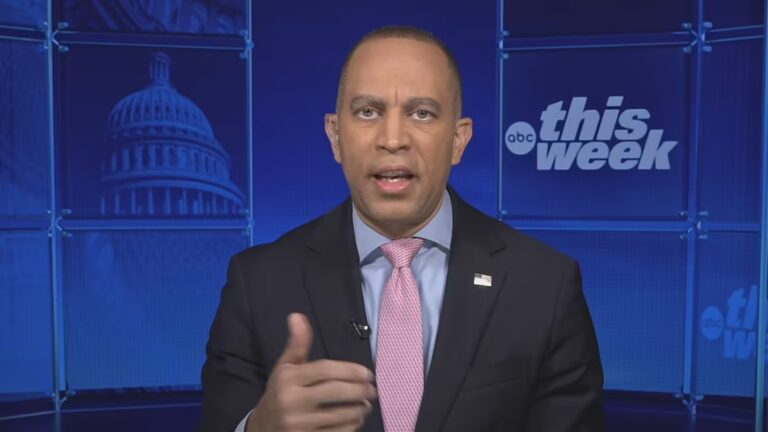
Sen. Lamar Alexander’s decision to oppose witnesses in President Trump’s Senate impeachment trial seems like the nail in the coffin. Without Alexander’s vote, Democrats have virtually no shot at winning enough support to call vitally important figures like former White House national security adviser John Bolton to the Senate floor to testify about Trump’s threats to withhold military aid from Ukraine.
Alexander’s justification for his vote is remarkable. He argues that there is “no need for more evidence to conclude that the president withheld United States aid, at least in part, to pressure Ukraine to investigate the Bidens” because ‘the House managers have proved this with what they call a “mountain of overwhelming evidence.’”
Not only did Alexander admit that Trump was guilty, but he admitted that what Trump did was wrong — he just didn’t think it warranted Trump’s removal from office.
“It was inappropriate for the president to ask a foreign leader to investigate his political opponent and to withhold United States aid to encourage that investigation,” he says. “But the Constitution does not give the Senate the power to remove the president from office and ban him from this year’s ballot simply for actions that are inappropriate.”
He thinks, in effect, that a president who attempted to interfere with the integrity of the 2020 election should be allowed to compete in that election without any real punishment for his behavior.
This is an absurd position. It’s an especially absurd position given that Alexander is retiring from the Senate, and thus has nothing to fear from Trump politically. So what is going on?
The best explanation I’ve seen comes from Tim Alberta, Politico’s chief political correspondent and a deeply sourced reporter among congressional Republicans. He suggests that Alexander was afraid — not of losing his job, but of threats to his future income and social status:
To put it another way, many Republicans exist in a social world where criticizing Donald Trump is an act of cultural treason. Bucking Trump doesn’t merely risk their congressional seat, but also their ability to find future employment and live comfortably in their communities even after retiring. Alberta describes profound fears of Trump’s “cult,” of “harassment of their families, loss of standing in local communities, [and] estranged relationships.”
I agree with Alberta that, when the stakes are as high as impeachment, this is a form of “weak-ass excuse-making.” And not all Republican officials live in social worlds as Trumpy as the ones described in his thread. But those qualms aside, I think it’s also worth making two additional points about the significance of the phenomenon he’s describing.
First, it’s an example of the dangers of what political scientist Lilliana Mason calls “mega-identity” in politics: Partisanship has come to be so closely linked to other parts of people’s identities, like their religion and racial self-identification, that it has become a kind of master stand-in for cultural belonging.
In a country defined by two mega-identities, defeat for your side isn’t merely a political loss, but an existential threat to your entire way of life. When Republicans feel this way about politics, then it makes sense that they’d see a vote against their president as an act of deep betrayal — and treat the person responsible accordingly, even in private life. This kind of extreme identity polarization poisons politics in ways often invisible in day-to-day observation that, nonetheless, contribute to the fundamental dysfunction of our political system.
The second thing is that it shows the ways in which the modern right depends on its own form of “political correctness.” We’re often told that the modern left is in some ways uniquely censorious, particularly on issues relating to race, gender, and sexual orientation. “There’s no right-wing equivalent to this kind of ideological policing toward people sympathetic to right-wing causes,” as the journalist Cathy Young recently put it.
Alberta’s explanation of Alexander’s vote shows us that this is simply not true. In conservative cultural spaces, even a very long right-wing record like Alexander’s doesn’t immunize you from the consequences of violating the community’s political standards. Stalwart conservative legislators are, according to Alberta, terrified of what people in their communities think of them. Imagine the ways in which many ordinary people in red areas, who have far less financial and social capital than the Lamar Alexanders of the world, feel about expressing anti-Trump sentiment!
The fact that this kind of censorship plays out in local communities, rather than the pages of national magazines, makes it no less powerful — and arguably more so. In fact, right-wing political correctness appears to be an important reason why Trump is about to get away with a monumental attack on the integrity of our democracy.
Sourse: vox.com






